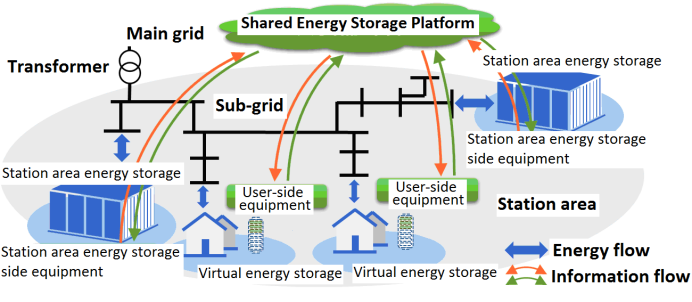recently, the national finals and award granting ceremony of the 2022 “silk road” internet of things operating system ecological application innovation and entrepreneurship competition hosted by china institute of instrumentation and organized by china southern power grid technology co., ltd. was successfully held in guangzhou online and offline. the project of “shared energy storage scheme and cost reduction and efficiency improvement measures in transformer station area” completed by the smart grid operation and optimization laboratory of the department of electrical engineering and applied electronics (eea) of tsinghua university won the exclusive first prize in the creative design track. the project was completed by doctoral students diao rui, bao zhiyuan, ma yuxin and engineer wu guanglei under the supervisor of hu zechun, all of whom are from eea.
with the accelerated development of distributed power generation and the implementation of time-of-use electricity prices, there appear demands for electric energy storage, self-generating and self-using, and low-charge but high-discharge. however, there is no clear and universal business model on how to meet various demands for energy storage, which has become a major barrier delaying the promotion and application of energy storage in this field.
with the intelligent hardware and the silk road operating system, the team solved the problem of unclear cost transmission path of shared energy storage in the transformer station area, clarified the core value and related interests of shared energy storage in station area, and proposed an operation plan and trading rules for energy storage in the station area.

the proposed scheme, which is involved with a large number of residential users and difficulties in regulation, can be easily upgraded and commercially generalized without modifying the original electricity bill settlement mode. moreover, the shared energy storage platform is integrated with various energy storage systems in the station area, and thus is potential to participate in and support the electricity market.
based on the proposed energy storage operation scheme and trading rules in the station area, the team proposed four core technologies for this model, and provided corresponding solutions to maximize the effect of energy storage in promoting distributed power consumption in the station area. the proposed scheme can be applied to scenarios such as suburbs and rural residential areas, photovoltaic development areas in a whole county, and rooftop photovoltaics in industrial parks.








